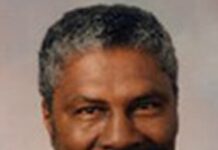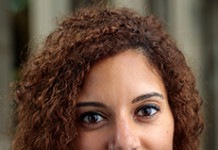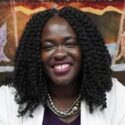 In an interesting experiment conducted at the University of Chicago, children ages 5 and 6, were shown video images and vocal recordings of a child and two adults. The children were asked, “Which adult will the child grow up to be?” In the images shown to the children, one adult matched the racial appearance of the child. The other adult matched the language spoken by the child. In no instance did the adults match both the child’s language and racial appearance.
In an interesting experiment conducted at the University of Chicago, children ages 5 and 6, were shown video images and vocal recordings of a child and two adults. The children were asked, “Which adult will the child grow up to be?” In the images shown to the children, one adult matched the racial appearance of the child. The other adult matched the language spoken by the child. In no instance did the adults match both the child’s language and racial appearance.
White children ages 5 and 6 were more likely to say the child in the video image would grow up to be the adult who spoke the same language rather than the adult who appeared to be of the same race. Katherine Kinzler, an assistant professor of psychology at the University of Chicago and the lead author of the research article, stated language can be more important than race in guiding young white children’s social preferences for others.
But when African American children were given the same test, they tended to say that the child would grow up to be more like the adult of the same race rather than the adult who spoke the same language as the child. Jocelyn Dautel, a graduate student who is co-author of the study, said, “Children of different racial groups may have different experiences with race as a meaningful social category, which could contribute to their performance.”
For 10-year-old children given the same test, both Whites and Blacks tended to choose the adult who had the same racial appearance as the child.
The research was published in the journal Developmental Science.











Based on the premise that children are taught racism, the results of this experiment are predictable. Unless a 5 or 6 year old is growing up in a bi-lingual and/or multi-racial home, it would seem reasonable that the child is going to identify with the adult whose speech they understand. Initially children do not see people racially. They see them simply as people until some adult or experience brings to their attention that there are “differences.” Physical characteristics vary from one person to another with no physical characteristic having higher value than any other unless we are taught and society assigns a higher value or underscores differences.
By the age of ten most children have learned racial differences and the social attitudes associated with those differences.
It is neither mystery nor revelation that “Children of different racial groups[may] have different experiences with race as a meaningful social category . . .” The performance, attitudes, and behaviors, not only of children, but of most who have been socialized in the United States are reflected in what is recognized as either racism or the effects of racism. Call it what you will in your erudite studies.